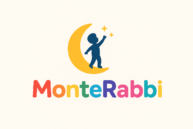Children achieve development milestones differently. However, during the first year, it is likely your child will recognize their name before he/she can say it. Why? because understanding speech skills and talking skills develop differently over unique timelines.
As early as 4-6 months your child may recognize their name. But they will not be able to mention their names and other people’s names until they are around 18 months and 24 months. Besides, your child will respond to their full name on request when they are around 2 to 3 years.
When Should a Child Know/Respond to their Name?
Many children understand and respond to their names by the time they are about 5 to 6 months, and others by 9 months. Because receptive language develops on a different timeline compared to expressive language. This explains why your child is more likely to understand what you are saying before she can recognize words back to you.
What can you do to help?
If you are wondering what you can do to help your child say their name, you are at the right place. But it is important to note some names are easier to mention than others. The tips below will help your child say their name without pressure or stress, at home. Where it’s a bit difficult to mention, consider creating a short nickname until their speech is fully developed.
1. Make a Photo Book
Using a photo book is a sweet and creative way to aid your child say his/her name and that of others faster. Try this tip with your child and see the magic.
Procedure
Make your own photo book. In this book, add several pictures of people your child sees often for best results. Ensure you add several photos of one person, and also for your child. Once the book is ready, you can go through it several times as you point at people saying their names.
However, consider this album as a toy they can carry everywhere rather than a fancy keepsake album. With this, your child can look at it daily as many times as possible. With time you can also add printed names. As your child grows you can reference the text to help them learn the letters of their name.
2. What’s Your Name Game
Playing this game with your child will help them know their names faster. To play, ask your child, “what’s your name?” then proceed to answer immediately saying their name. However, it’s important to be playful and slow.
Repeat this game as many times as you can so that your child can have lots of practice. As you slow down your child’s name, it will make it easier for him/her child to say. Again, sometimes you need to repeat the game without saying their name, to give them a chance to participate in the game, and with time they can say it.
3. Nickname Your Child
Your child’s name may be difficult to say than others. This will make them slow in saying their names compared to others. It is also important to note some speech sounds develop at the different speech development stages.
Babies will say easier sounds like “b” and “m” earlier than others. Whereas harder to say sounds like “j”, “w”, “z”, “th”, and “sh” might take longer to say until your child is 3 years or 4. Some names are challenging for your little one, you better be patient.
4. Reading Books
Read suitable books to your baby regularly as you point and name the pictures she/he sees. As you alternate between showing interest, listening, and talking as your baby responds. Also, respond to what h/she says to teach about turn-taking in a conversation.
In conclusion, as a new parent communicating with your child is among the best feelings. It is spectacular and exciting seeing your child respond as you say their name. However, never mind if your baby has not yet reached this milestone.
Children develop differently at their own pace in language development. Besides, don’t be very comfortable or hesitate to consult your child’s pediatrician in case you have any concerns. Your doctor will answer any concerns about your child’s language and speech development.
